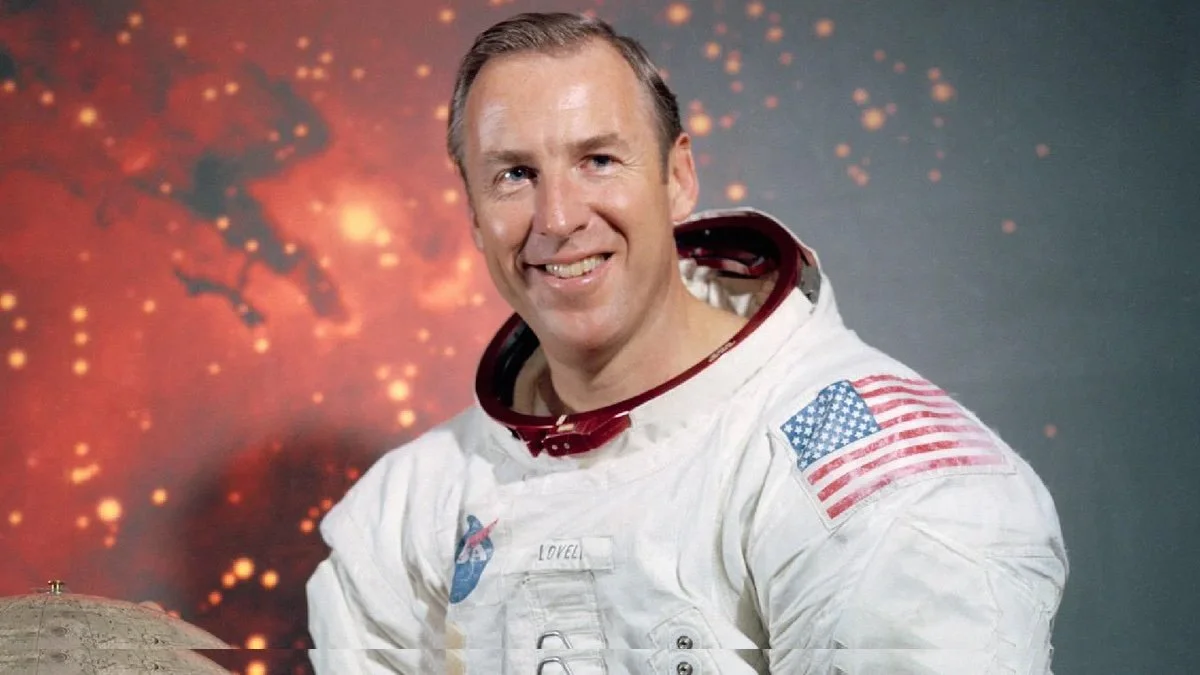Captain James A. “Jim” Lovell Has Flown West
Captain James A. "Jim" Lovell, USN - A
Life Among the Stars
March 25, 1928 - August 7, 2025
From Eagle Scout to cosmic explorer, Captain Jim Lovell lived a life defined by adventure, dedication, and distinction. Much like Lewis and Clark risked their lives to chart an unknown wilderness, Lovell ventured into the vast expanse of space-mapping humanity's first steps beyond Earth.
Born a year after Charles Lindbergh's historic transatlantic flight, Lovell's fascination with flight began early. As a boy, he built model rockets to feed his growing interest in space exploration. That passion deepened at the United States Naval Academy, where he studied engineering and authored a thesis on liquid-fueled rocket engines. Upon earning his wings, he became a naval aviator and later a distinguished test pilot— a path that would carry him to the very foretront of the space race.
In 1962, Lovell's lifelong dream took flight when he was selected for NASA'S Astronaut Group 2, destined to fly in the pioneering Gemini and Apollo programs. Over the course of four missions, he logged more than 715 hours in space and became the first person to travel to the Moon twice.
The first of those historic lunar voyages came in December 1968 aboard Apollo 8. Alongside Frank Borman and Bill Anders, Lovell made history as one of the first humans to orbit the Moon. Over ten revolutions, the crew shared breathtaking images of the lunar surface and the now-iconic "Earthrise" photograph-offering humanity a profound new perspective on our place in the cosmos. Their live Christmas Eve broadcast, in which they read from the Book of Genesis, became one of the most-watched and moving moments in television history.'
Lovell's final mission, Apollo 13 in April 1970, was intended to culminate in a lunar landing. But two days into the flight, an oxygen tank exploded, crippling the spacecraft. His calm leadership in the face of crisis, immortalized by the phrase, "Houston, we have a problem," helped guide fellow astronauts Jack Swigert and Fred Haise safely home after four tense days in freezing, power-starved conditions. The mission, once a potential tragedy, became known as NASA's "successful failure" — a triumph of ingenuity, teamwork, and courage under pressure.
After retiring from the Navy and NASA in 1973, Lovell transitioned to the business world, holding leadership roles in several corporations before retiring in 1991. He co-authored the book, Lost Moon: The Perilous Voyage of Apollo 13 with Jeffrey Kluger, which became the basis for the Academy Award-Winning film Apollo 13, directed by Ron Howard and starring Tom Hanks as Lovell.
A member of the Living Legends of Aviation® since its early years, Lovell's life remains an enduring testament to exploration, resilience, and the unbreakable human spirit. His journey carried us farther than we had ever gone- and his legacy will inspire generations yet to come... to dream of the stars.
LIVING LEGENDS OF AVIATION'
Living Legends of Aviation • 4 W. Dry Creek Circle, Suite 100, Littleton CO 80120, United States



